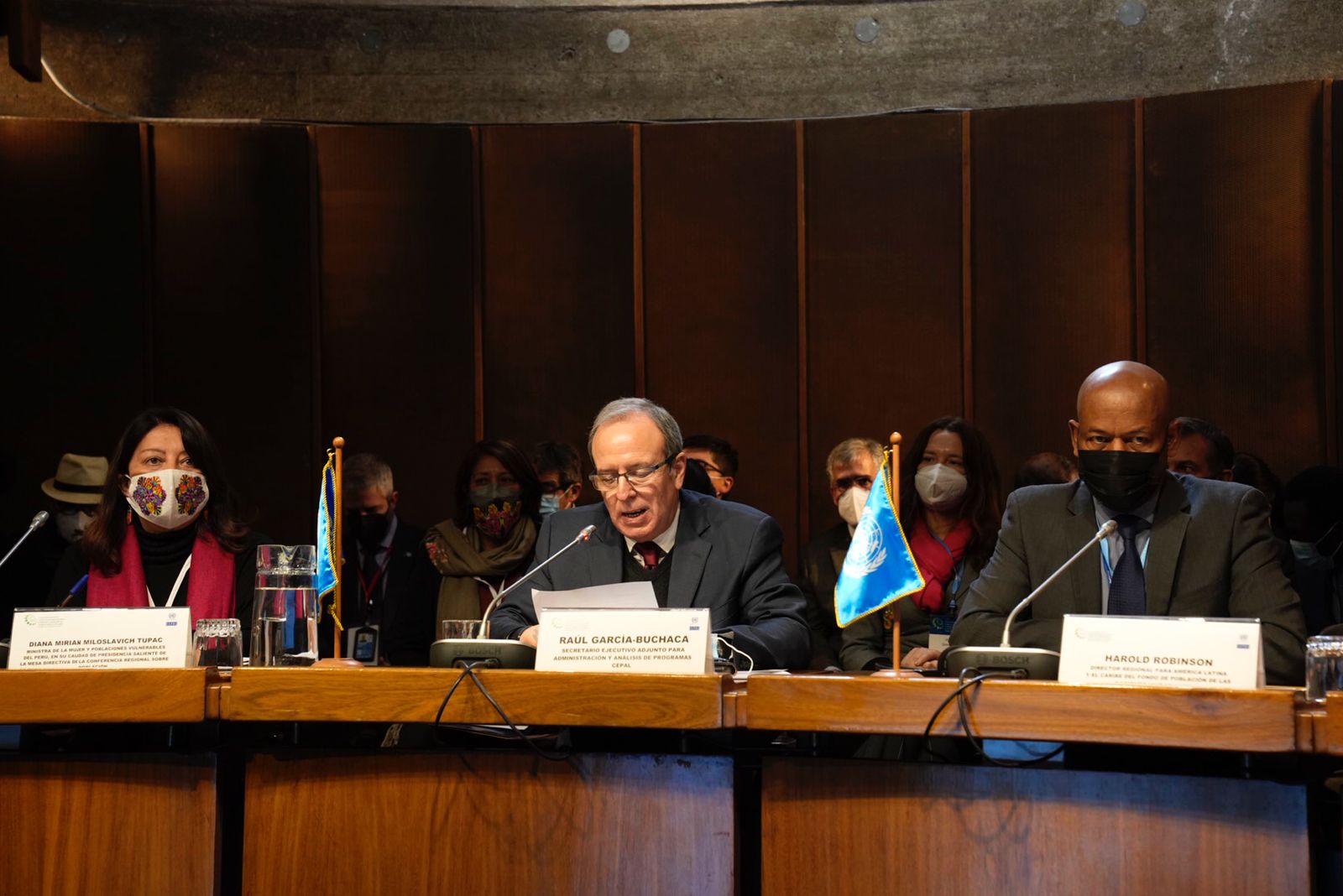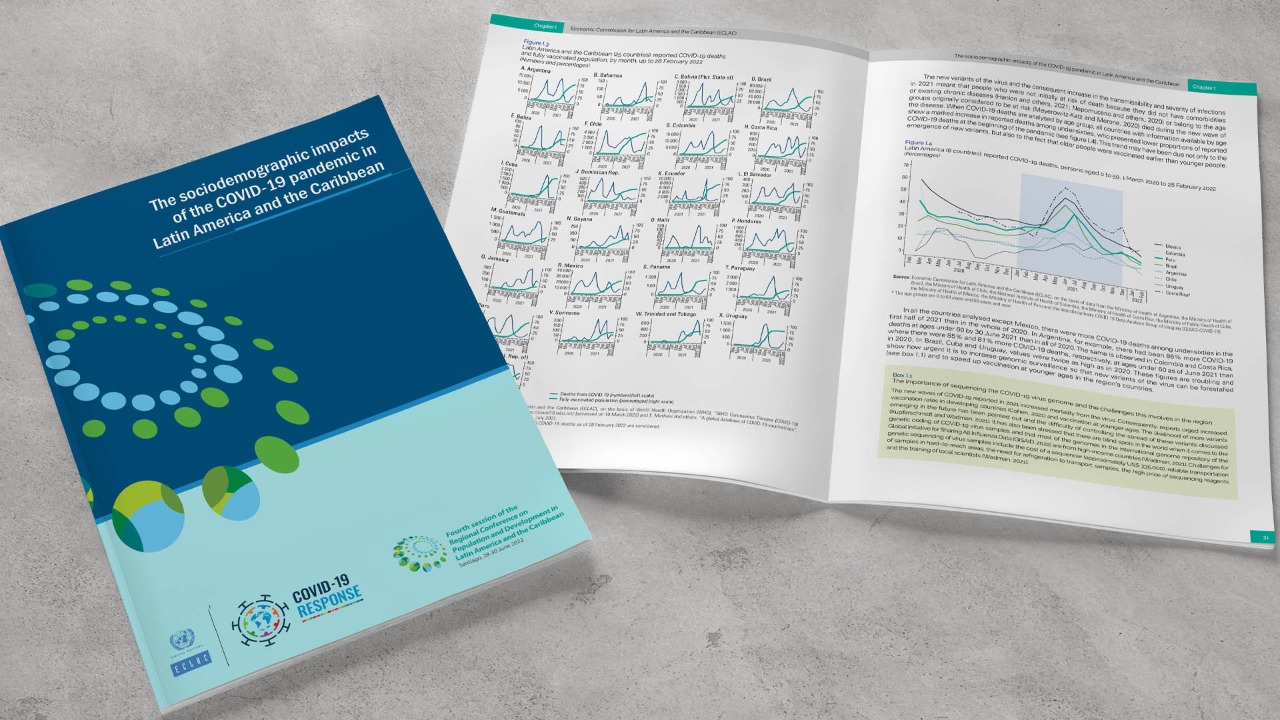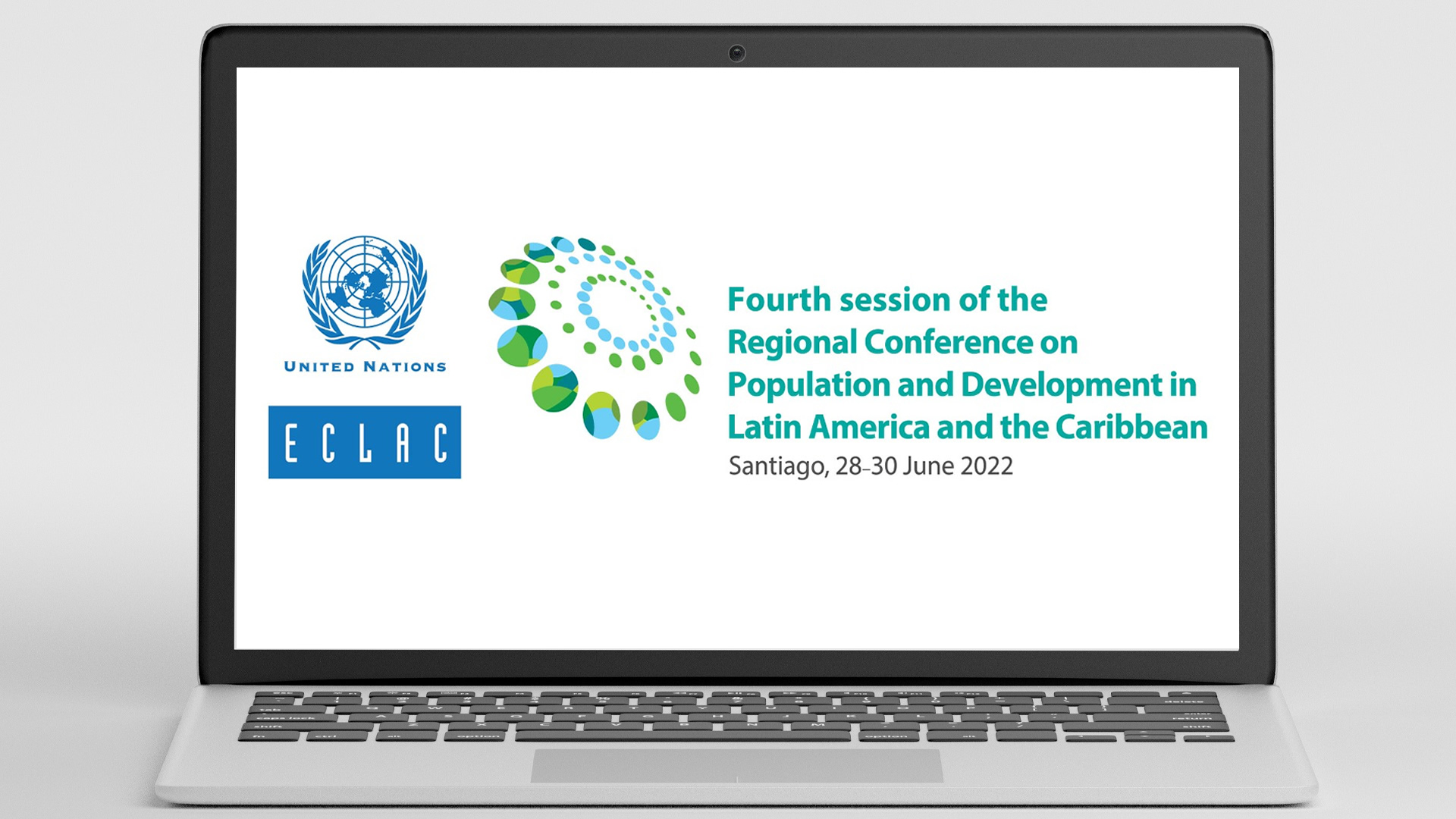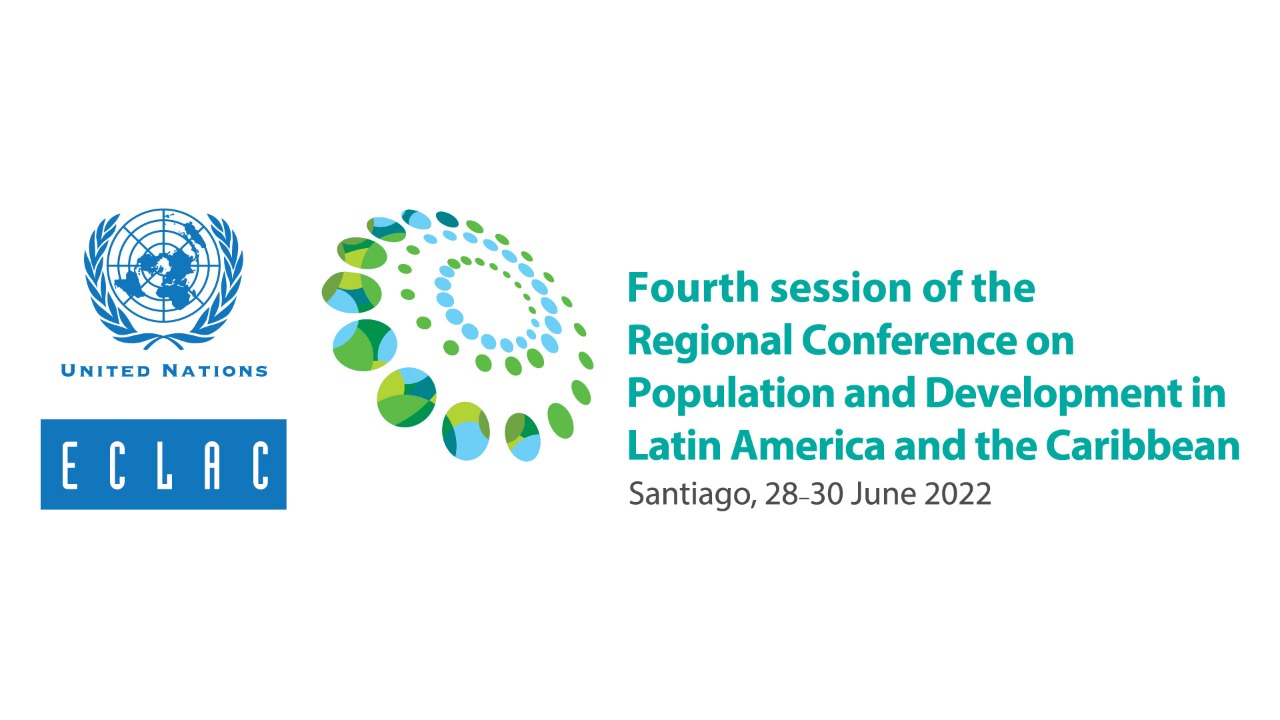Countries Stress the Urgency of Moving Towards an Agenda for Equality that Would Guarantee the Entire Population’s Full Enjoyment of Rights
Work area(s)
Today senior authorities inaugurated the fourth session of the Regional Conference on Population and Development, which is taking place through Thursday, June 30, at ECLAC’s headquarters in Santiago, Chile.

Representatives of Latin American and Caribbean countries stressed today the urgency of moving towards an agenda for equality geared towards the fulfillment and full enjoyment of the entire population’s rights, which would put an end to the multiple, overlapping inequalities that characterize the region, during the inauguration of the fourth session of the Regional Conference on Population and Development, which is taking place through Thursday, June 30 at the headquarters of the Economic Commission for Latin America and the Caribbean (ECLAC) in Santiago, Chile.
At the meeting, countries also renewed their full commitment to implementing the Montevideo Consensus – Latin America and the Caribbean’s most important intergovernmental agreement on population and development matters – and they urged for ensuring universal social protection as a pillar of the welfare state and the care society.
During this three-day gathering, high-level representatives of government, international institutions, the United Nations, the private sector, academia and civil society will analyze the sociodemographic impacts of the COVID-19 pandemic in the region and the challenges that the health and social crisis poses for implementation of the Montevideo Consensus.
The meeting was inaugurated by Raúl García-Buchaca, Deputy Executive Secretary for Management and Programme Analysis of ECLAC; Harold Robinson, Regional Director for Latin America and the Caribbean of the United Nations Population Fund (UNFPA); and Diana Mirian Miloslavich Tupac, Minister for Women’s Affairs and Vulnerable Populations of Peru, in her capacity as outgoing Chair of the Presiding Officers of the Regional Conference on Population and Development. Also participating was Sergio Armando Cusicanqui Loayza, the Planning Minister of Bolivia, the country unanimously chosen today to serve as Chair of the Conference for the next two years.
In his opening remarks, Raúl García-Buchaca emphasized that Latin America and the Caribbean’s structural inequalities have led the region to suffer an unprecedented health, economic and social crisis, with the deepest impacts in the world in comparative terms.
He sustained that moving ahead on implementation of the Montevideo Consensus means, now more than ever, focusing energies on rescuing the 2030 Agenda and swiftly spearheading a just, green transition that would put people at the center and leave no one behind.
“To effectively be carried out, this must translate into public policies and priority programs that would promote the participation and inclusion of indigenous and Afrodescendent peoples; of older persons; of people with disabilities; the inclusion of care in social protection systems; into promoting, protecting and guaranteeing health and sexual and reproductive rights; preventing unsafe abortion; assisting and protecting those who migrate; and planning and moving forward on managing territorial and urban development, among other aspects,” he affirmed.
Meanwhile, Harold Robinson, Regional Director of UNFPA, recalled that Latin America and the Caribbean has been the region in the world hardest hit by the pandemic, particularly in terms of mortality.
He added that the situation caused by the COVID-19 pandemic puts us face to face with a region strained by health, economic and social challenges, which intersect and reinforce each other.
“Inequality, which is the main element characterizing our continent, has become tragically more visible. Health, jobs and well-being were not affected equally for everyone. We must not return to the ‘old normality’ based on privileges,” he stated.
In her remarks, Diana Mirian Miloslavich Tupac, Minister for Women’s Affairs and Vulnerable Populations of Peru, warned that despite progress made on implementing the Montevideo Consensus, the pending challenges are much bigger and more pressing today, and they are largely linked to the significant gaps that already existed between countries and within them.
“It is clear that the region still has a long road ahead in all areas of the population and development agenda. This will require policies sustained over time that, coupled with a deepening of approaches based on rights, interculturality and gender, would allow us to extend the progress made and avoid stagnation or setbacks,” she underscored.
The Planning Minister of Bolivia, Sergio Armando Cusicanqui Loayza, meanwhile, reaffirmed his country’s commitment to the Montevideo Consensus and its priority measures.
“We are aware of the work we must engage in, starting today, and we express our greatest commitment to it,” he declared.
Following the inauguration, Simone Cecchini, Director of the Latin American and Caribbean Demographic Center (CELADE)-Population Division of ECLAC, presented to participating countries The sociodemographic impacts of the COVID-19 pandemic in Latin America and the Caribbean, a document that addresses the pandemic’s repercussions vis-à-vis the population dimension and includes proposals from a public policy perspective.
This report contributes data and analyses on the pandemic’s deep, varied and very human repercussions for the three components of demographic dynamics: fertility, mortality, and internal and international migration.
Related content

ECLAC Analyzes the Pandemic’s Deep, Multiple Effects on the Region’s Population and Gives Recommendations for a Transformative Recovery with Equality
A new document by the UN regional commission will be presented to the countries of Latin America and the Caribbean during the Fourth Session of the Regional Conference on Population and Development,…

How to Follow the Fourth Session of the Conference on Population and Development in Latin America and the Caribbean
The event’s main panels will be transmitted live from June 28 to June 30, 2022. The invitation on social media is to participate in the debates using the hashtags #poblaciónALC and #populationLAC.

Authorities Will Analyze the Pandemic’s Sociodemographic Impacts in the Region and Challenges for Implementing the Montevideo Consensus
The Fourth Session of the Regional Conference on Population and Development in Latin America and the Caribbean will take place using a hybrid format on June 28-30, 2022, at ECLAC’s central…

4th Regional Conference on Population and Development in Latin America and Caribbean (Monday 28 Jun)
(English translation) Fourth session of the Regional Conference on Population and Development in Latin America and the Caribbean (first day, Monday 28 June, 2022). More info in…
Related link(s)
-
LIVE TRANSMISSION
Presentation: The sociodemographic impacts of the COVID-19 pandemic in Latin America and the Caribbean
Document: The sociodemographic impacts of the COVID-19 pandemic in Latin America and the Caribbean
Document: Montevideo Consensus on Population and Development
Website of the Fourth Session of the Regional Conference on Population and Development in Latin America and the Caribbean
Country(ies)
- Latin America and the Caribbean
Contact
Public Information Unit
- prensa@cepal.org
- (56 2) 2210 2040
